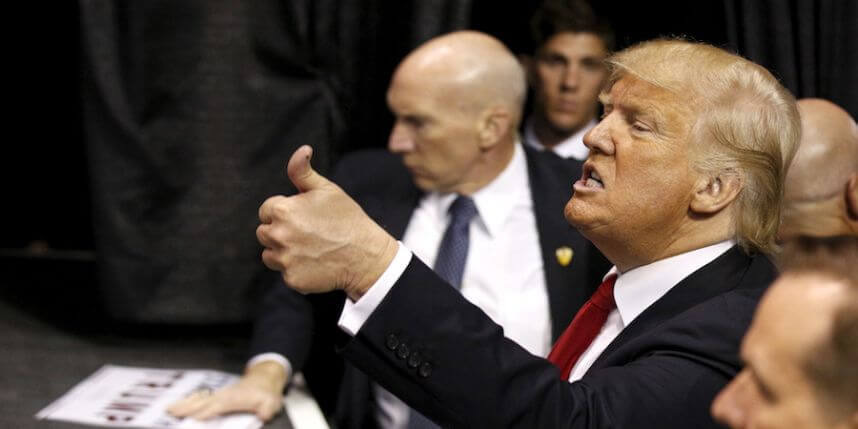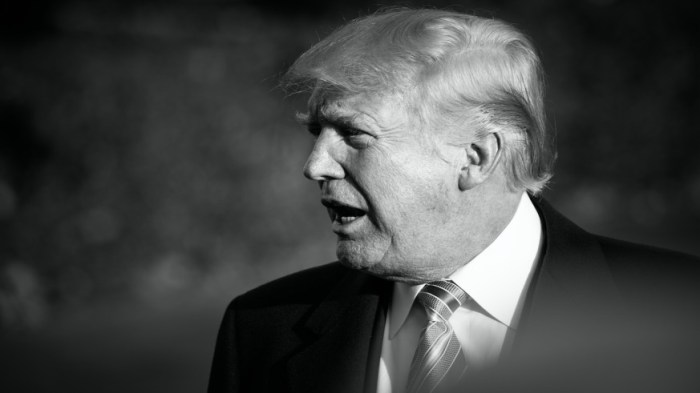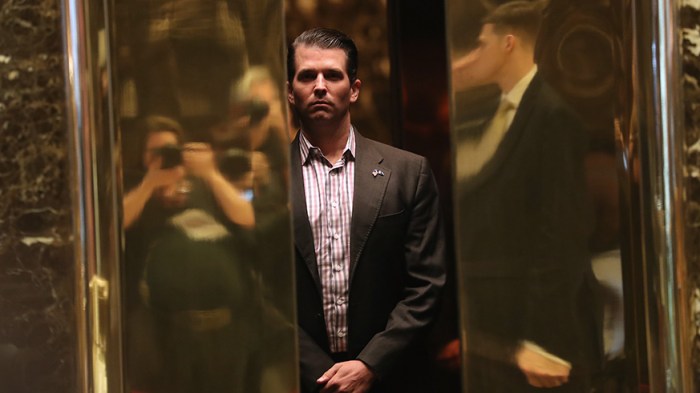As President Donald Trump has started researching his presidential pardon powers, speculation has swirled that he could use the authority as a means to shut down the Russia investigation, and experts say there’s not much standing in his way.
While it’s still unclear whether Trump could pardon himself, the pardon clause of the Constitution gives the president wide authority to a grant presidential pardons.
Constitutionally, Trump can absolutely pardon whomever he pleases without any legal repercussions — even family. Typically, experts say, it would be political suicide to pardon a family member, but then again, the rules of politics don’t appear to apply to Trump.
Generally, pardons are vetted via the Justice Department’s Office of the Pardon Attorney, but Trump has hinted that he could hand out pre-emptive pardons to family members like son Donald Trump Jr. and son-in-law Jared Kushner, who are both being investigated for conducting undisclosed meetings with Russian officials.
Trump hinted at his power to pardon and what it could mean for the investigation into ties between his campaign and Russia’s attempts to influence the 2016 presidential election in a July 22 tweet saying, “While all agree the U. S. President has the complete power to pardon, why think of that when only crime so far is LEAKS against us. FAKE NEWS.”
While all agree the U. S. President has the complete power to pardon, why think of that when only crime so far is LEAKS against us.FAKE NEWS
— Donald J. Trump (@realDonaldTrump) July 22, 2017
President Gerald Ford’s pardon of Richard Nixon for the Watergate scandal is the most relative example of a pre-emptive pardon in U.S. history, as Nixon was never charged.
How a presidential pardon works
“In the normal case, the White House won’t touch a case unless it’s gone through that administrative process at DOJ,” Samuel Morison, a former lawyer in the Office of the Pardon Attorney, told Huffington Post. “It protects them from being embarrassed if it goes through DOJ, and it also gives them some political cover. If there’s criticism, they can say, well, DOJ told us to do it.”
The Office of the Pardon Attorney doesn’t accept applications for presidential pardons from people who haven’t been convicted of a crime, but that won’t necessarily stop Trump from issuing a presidential pardon anyway. The power is guaranteed in the Constitution, meaning it’s unlikely Congress could pass laws limiting the pardon powers, and the clause doesn’t specify how to issue a presidential pardon — he could even do it via Twitter, Brian Kalt of Michigan State University College of Law told USA Today.
“I hope not, but I think that it could work,” said Kalt.
“If Trump tweeted, ‘Pursuant to my authority as President I fully pardon @ProfBrianKaltfor for any federal offenses he has committed since 1/20/2017,’ I think I would have a colorable argument to take into court,”
Presidential pardon for family
Trump wouldn’t be the first to pardon a family member or aid — President Bill Clinton pardoned his half-brother Roger after he was caught selling cocaine to an undercover officer. President George W. Bush commuted the sentence of ex-White House aide I. Lewis “Scooter” Libby after he was convicted of perjury, obstruction of justice and lying to investigators in the probe of the leak of the name of a CIA operative.
This difference is that neither of these pardons came before an indictment was handed down — Clinton’s half-brother had already served a year in prison when Clinton pardoned him, and Libby was still forced to endure probation and pay a $250,000 fine for his conviction.



















